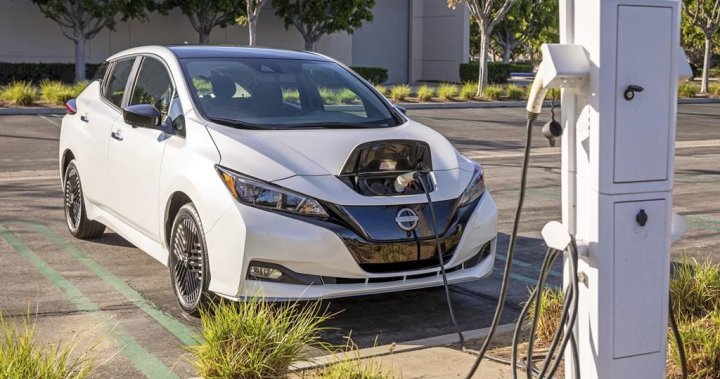The abrupt suspension of the Canadian federal government’s electric vehicle (EV) rebate program, the Incentives for Zero-Emission Vehicles (iZEV) program, has spurred several automakers to implement their own temporary rebate initiatives to bridge the gap and maintain sales momentum. The iZEV program, which offered rebates of up to $5,000 for eligible EV purchases, was prematurely halted due to depleted funds, leaving many prospective buyers and the automotive industry in a precarious position. This unexpected move has raised concerns about Canada’s ability to meet its ambitious EV sales targets and mirrors a trend of weakening support for EV adoption in the United States under the new Trump administration.
Responding to the iZEV program’s suspension, prominent automakers such as General Motors, Volkswagen, Nissan, and Hyundai have stepped in to offer their own rebates, effectively matching the federal incentives for a limited time. These manufacturer-led rebates aim to mitigate the impact of the program’s sudden termination on consumers who were in the process of purchasing an EV. Nissan, for instance, is offering rebates specifically for its Ariya SUV, while Volkswagen is providing rebates on remaining 2024 ID.4 models. General Motors and Hyundai are extending rebates to specific EV models within a defined timeframe, acknowledging the unsustainability of manufacturer-funded incentives in the long term. These temporary measures underscore the automakers’ commitment to supporting consumer EV adoption despite the unexpected withdrawal of government support.
Other automakers have also joined the effort to cushion the blow of the iZEV program’s suspension. Mazda Canada is offering rebates on its CX-70 and CX-90 plug-in hybrid models, while Honda Canada is extending rebates to facilitate the sale of 2024 Honda Prologue models. These initiatives demonstrate the industry’s collective effort to maintain consumer confidence and sales momentum in the face of fluctuating government policies. Mazda Canada’s CEO expressed frustration with the government’s failure to uphold its commitments to provide incentives and support infrastructure development, highlighting the tension between government mandates and the practical realities of achieving ambitious EV adoption targets.
The iZEV program, prior to its suspension, had demonstrated considerable success in driving EV adoption in Canada. In the first eleven months of 2024, the program disbursed over $927 million for more than 191,000 new EVs, representing a significant increase compared to previous years. This data underscores the program’s effectiveness in incentivizing EV purchases and accelerating the transition towards a more sustainable transportation landscape. While the federal program is paused, some provincial rebate programs remain active, providing continued support for EV adoption in certain regions of Canada. Quebec, however, is also planning a temporary pause and eventual termination of its provincial incentive program, adding further complexity to the EV landscape.
The Canadian government’s mandate requiring EVs to comprise an increasing percentage of new vehicle sales, culminating in 100% by 2035, faces heightened challenges following the iZEV program’s suspension. Industry groups, including auto manufacturers and dealers, have argued that these mandates are unrealistic without adequate government support and incentives to address affordability concerns. The simultaneous rollback of EV incentives and mandates in the United States under the Trump administration further complicates the North American automotive market. President Trump’s executive orders aim to eliminate what he terms “unfair subsidies” for EVs, arguing that they distort the market and disadvantage traditional gasoline-powered vehicles.
The contrasting approaches to EV policy in Canada and the United States create a complex and uncertain environment for automakers. While certain automakers have reported record EV sales in 2024, the overall pace of EV growth has slowed, highlighting the persistent challenges of affordability and consumer preference. The cost of EVs, despite gradual declines, remains higher than gasoline-powered vehicles, posing a significant barrier to widespread adoption. Furthermore, the shifting political landscape and fluctuating government policies surrounding EV incentives add to the uncertainty, potentially impacting investment decisions and long-term strategies for the automotive industry. Despite these challenges, the temporary rebates offered by automakers signal their commitment to navigating this complex environment and continuing to promote the adoption of electric vehicles.

